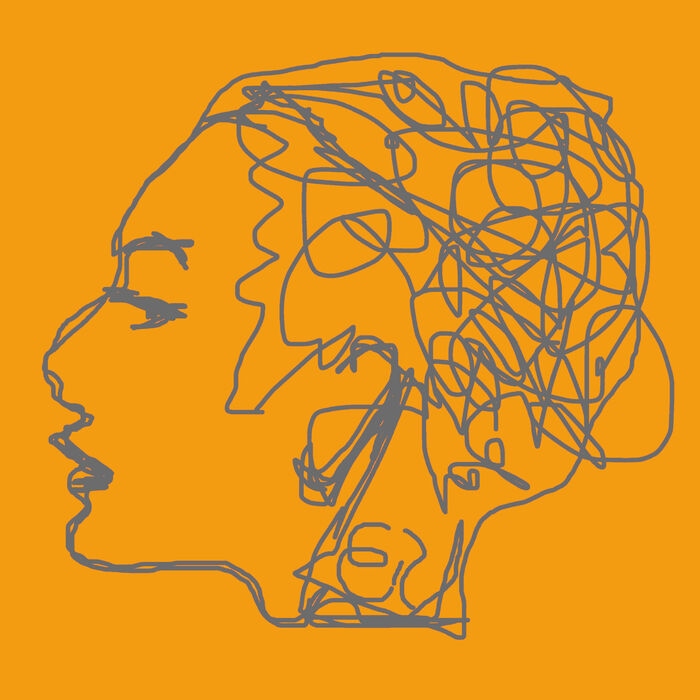Mapping this city onto my body
Charley Barnard reflects on how her relationship with her body changes with the seasons

Content note: this article contains detailed discussions about body image, dieting, street harassment, and PTSD.
It’s winter in Paris. Finally, it’s time for long coats, jeans, wooly jumpers and miles of scarves. Soft material hugs my neck, my hands are in my pockets, from head to toe I am covered, wrapped up warm and safe from stares. My eyes can finally rise to meet the city I walk in.
It is a relief compared to the summer months, when 35-plus degree heat kept seasoned Parisians out of the city, while I, a newcomer, did the daily commute, constantly sticky and unable to breathe. I wore clothes that touched me as little as possible. I wore shorts, T-shirts, linen, sandals. I showed more of my body than I ever have, attracting attention that I am lucky to have never received in England. Every time I left the house, I was greeted by stares, comments, shouts, lewd gestures, men whose eyes lit up when they saw me, viewing me as a treat solely for their enjoyment.
I spent a summer with my eyes down, headphones in, not wanting to look up at the city where I used to dream of living. Every time I made eye contact with a man and saw that flash of delight, I could feel him mentally undressing me, fucking me in his mind. I wanted to vomit.
They say that people with PTSD find it difficult to feel safe again, something I have felt acutely since my trauma and diagnosis. I have found it difficult to reclaim control of my body, and I know I am more sensitive than most to the eyes and actions of men in Paris. I have a tendency to see risks where there are none, and my fight-or-flight response works overtime.
When speaking about my experience, I minimise it, partly because I fear I’m overreacting, and partly because I feel it’s old news. Catcalling is so common that I wonder what I could possibly add to the conversation. And if street harassment is the worst thing to happen to me on my year abroad, I am much luckier than most.
I feel part of this time was robbed from me
But my experience of Paris has been unique. I have mapped this city on to my body. One day, faced with yet another man who had gone out of his way to gesture squeezing my chest in broad daylight, I found myself considering my size, my shape. Maybe if I was smaller, maybe if my hips were slimmer and my clothes hugged less. If I dropped a cup size or two. If my thighs could just not… jiggle so much. I knew immediately that this is distinctly un-feminist: the problem is never me, the problem is never my body, the problem is a society that tells men that women’s bodies belong to them, that catcalling and street harassment are just a part of life, it’s actually just a compliment, babe, don’t be so stuck up!
But mental illnesses like PTSD can manifest in unexpected ways, and they don’t care that blaming my curves for my harassment is un-feminist. It was an idea that stuck. I wanted to become smaller to fit into the tiny gaps left on the Metro.
But most of all, I wanted to become smaller for the men. The men on the street, the men on the tram, the men in waiting rooms and supermarket queues and tourist attractions. The men that are everywhere with their eyes and their comments. I thought I was giving them less to look at, less to comment on.
I feel part of this time was robbed from me. I spent a summer miserable and scared, calling my partner (who remained in England) every time I went anywhere alone after sunset, becoming irrationally terrified if he wasn’t free to chat. I dreaded the hottest days, feeling frustrated with myself for blaming my body, knowing deep down that it was pointless. No change to my body can change the patriarchy. No matter my size, if my skin is on display, men will feel entitled to it.
Now it is winter, and with my curves out of sight, I can look up again, finally take Paris in. On my walk to the Metro station, there is often a little tabby cat that sits on a windowsill on the first floor. Men don’t look twice at me. There is freedom in being contained by clothes. I feel safer and happier, although I am still trying to reconcile the destructiveness of my relationship with my body.
I have learned a new, insidious form of self-inflicted violence: that men can hurt me without so much as laying a finger on me. I refuse to let it continue.
My therapy starts this month.
 News / Caius clock hand returned nearly 100 years after student prank31 March 2025
News / Caius clock hand returned nearly 100 years after student prank31 March 2025 News / Hundreds of jobs to be cut at Cambridge University Hospitals1 April 2025
News / Hundreds of jobs to be cut at Cambridge University Hospitals1 April 2025 Comment / More Cambridge students should study abroad 1 April 2025
Comment / More Cambridge students should study abroad 1 April 2025 Features / Cloudbusting: happy 10th birthday to the building you’ve never heard of30 March 2025
Features / Cloudbusting: happy 10th birthday to the building you’ve never heard of30 March 2025 Fashion / The Cambridge puffer: a debate 27 March 2025
Fashion / The Cambridge puffer: a debate 27 March 2025




